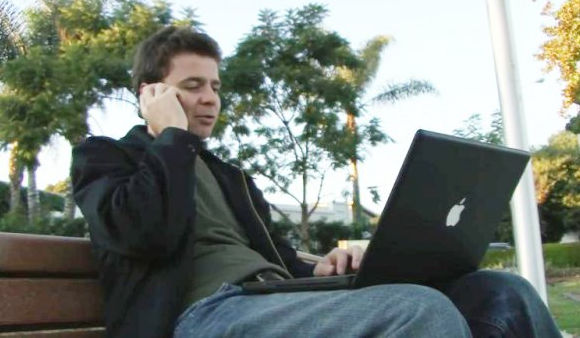“Craigslist Joe”: A Unique Experiment in Social Living
by Ryan Dwyer | April 12, 2013

A computer, a phone, a toothbrush, and the clothes on his back. This is what Joseph Garner possessed as he set out on a 31-day adventure around the United States. Oh—and Craigslist.
The goal was to cross the country using nothing but the generosity found on Craigslist, the online classifieds forum that bills itself as offering “jobs, housing, goods, services, romance, local activities, advice—just about anything really.”
The trip was instigated by a perceived lack of community in America. Joe felt that Americans are alienated from one other, and that we don’t take care of one other. Or do we?
In 2009, after the economic downturn, Joe wanted to see if the sense of community was still intact in our modern era. What if you lost everything and had no family to turn to—could you survive? Would social media help? He set out on an adventure where he would live completely off of the goods, services, and support offered by strangers online—hence the title, Craigslist Joe.
The documentary follows Garner, then 29, around the country as he catches rides, crashes on couches, and eats free food acquired via listings on the website. It’s filmed by a camera man that Joe found on Craigslist for $1,000. In the span of a month, Joe is able to drive from Los Angeles to the East Coast and back again—all for free. All the while, strangers are housing and feeding him out of the kindness of their hearts.
The film is a powerful illustration of the generosity of strangers, as well as the massive potential offered by sharing and technology. He meets a number of people who show him extreme kindness and sympathy. The story is not just about Joe, but it’s about the collective difficulties we face as an American community that, in more ways than we realize, bind us together.
He meets a vibrant cast of characters. Lots of them are weird, almost all of them have their own struggles, yet they all help. In this way, I think Craigslist Joe is a vivid depiction of the resilience of the goodness of people.
But it’s important to note that Joe is living mostly on one side of a two-sided coin. To take, you must also give. I realize that his adventure was a social experiment exploring abnormal circumstances, and I don’t think Joe is a greedy guy, but in the real, longer-term world, Craigslist and other collaborative consumption services require constant give and take.

Everyone must contribute, and it is by contributing that the system continues to function. Although movies like Craigslist Joe can be informative and inspiring, they can also lead us to think unconsciously that we can always get stuff for free. The sharing economy is based around mutual benefit and reciprocal giving. It’s important to keep this in mind and to remember to do good by others.
To Joe’s credit, he does volunteer his time and labor in exchange for some of the services he receives, and I think this is great. But the majority of the film depicts the unrewarded benevolence of others, and this may be its most valuable takeaway. Even in tough times, people are good to each other.
All in all, it’s an interesting look at the power of generosity and human goodwill. The American community is still alive, and even seems to be thriving online. Craigslist Joe offers a compelling look at how we can use technology to help one other. If you get a chance to watch the film, I hope it inspires you to help others, and to be part of the resilient American community.
Ryan Dwyer graduated from the University of Nevada, Reno, with a bachelor’s degree in Psychology and a minor in Philosophy. He is currently an intern with New Dream.

